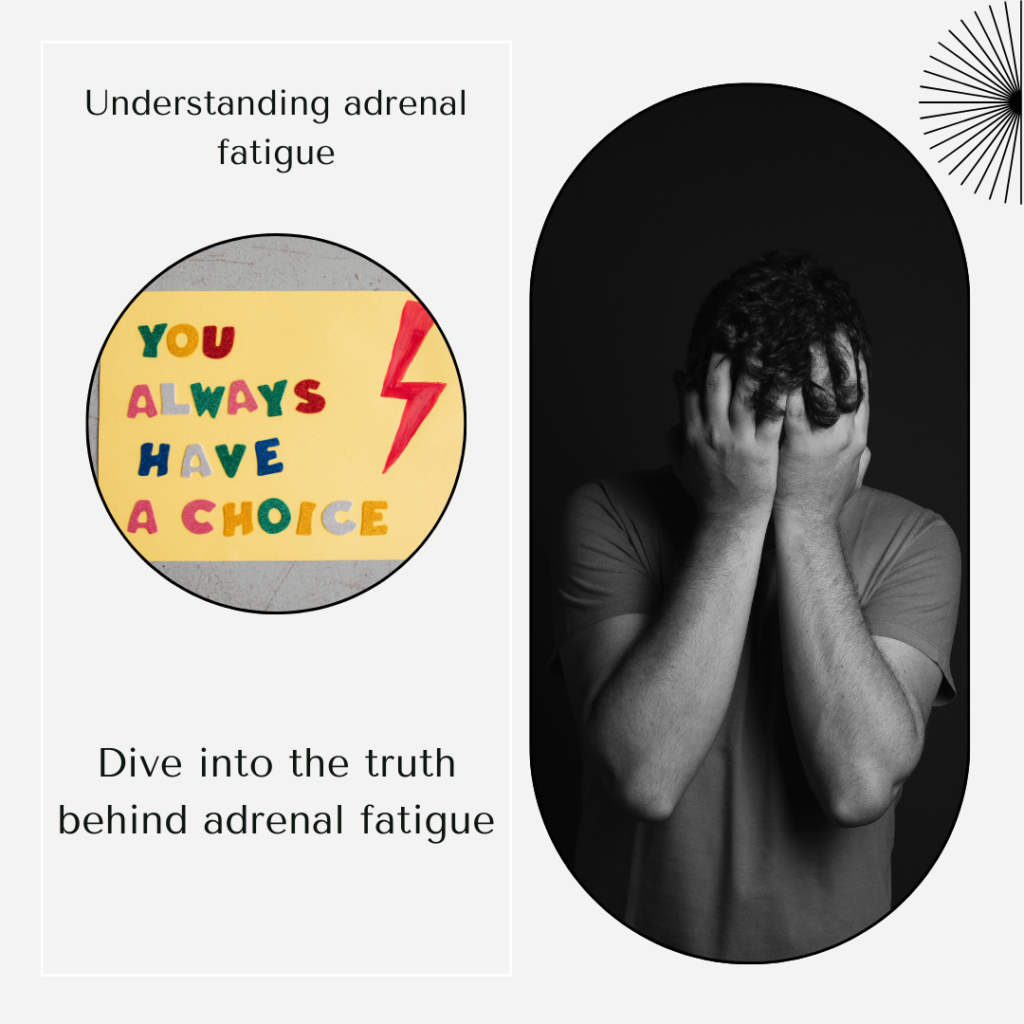Adrenal Fatigue: Myth or Reality?
Understanding Stress and Its Impact on the Body
In today’s fast-paced world, the term “adrenal fatigue” is often used to describe a condition of chronic stress and exhaustion. But what is adrenal fatigue, and is it a real medical diagnosis? Let’s explore this concept, the science behind stress, and practical ways to manage its effects on our minds and bodies.
What is Adrenal Fatigue?
The idea of adrenal fatigue suggests that prolonged stress causes the adrenal glands to become overworked, leading to low cortisol levels and symptoms like fatigue, body aches, and digestive issues. However, while “adrenal fatigue” is not a recognized medical condition, the symptoms people experience are very real and often related to the body’s response to chronic stress.
Stress is a survival mechanism that dates back to our ancestors. It triggers the “fight or flight”response, releasing hormones like cortisol to help us react to threats. In prehistoric times, stress typically stemmed from immediate physical dangers, such as predators. Today, stress has evolved into a constant state of mental and emotional pressure, driven by:
- Work deadlines.
- Social media notifications.
- Financial challenges.
- Modern-day “always-on” culture.
This prolonged exposure to stress can lead to an overactive stress response, causing symptoms like anxiety, irritability, high blood pressure, and physical fatigue. While the adrenal glands themselves may not be “fatigued,” the body’s stress system can become dysregulated, impacting overall health.
The Effects of Chronic Stress
When we remain in a sustained state of stress, it can manifest in various ways, including:
- Physical Symptoms: Fatigue, muscle aches, headaches, and digestive problems.
- Mental Health Issues: Anxiety, depression, and irritability.
- Hormonal Imbalances: Elevated cortisol levels can interfere with sleep, metabolism, and blood pressure regulation.
These symptoms highlight the importance of addressing stress and developing healthy coping mechanisms.
Dealing with Stress: Steps Toward a Calmer Mind
Managing stress effectively can help prevent its negative effects on your body and mind. Here are some practical strategies to regain control and find balance:

1. Be Mindful of Your Stress Triggers
- Recognize when stress is tricking your mind into feeling anxious. Identifying your triggers is the first step toward managing them.
2. Practice Relaxation Techniques
- Incorporate meditation, yoga, and breathing exercises into your routine to achieve a sense of calm. Even a few minutes a day can make a difference.
3. Connect with Nature
- Take a walk outside, and immerse yourself in the simple joys of nature. Listen to the birds sing, watch the rustling leaves, or enjoy the flow of a nearby stream.
4. Disconnect from Technology
- Set aside time each day to unplug from social media and your phone. Use this time to engage in activities that bring you joy, such as reading, exercising, or spending time with loved ones.
5. Express Gratitude
- Shift your perspective by focusing on the positives. Write down a list of things you’re grateful for, even during difficult times. This simple practice can transform your mindset.
6. Prioritize Human Connections
- Instead of texting or scrolling through social media, call a friend or meet in person. Meaningful conversations can reduce feelings of loneliness and stress.
7. Rediscover Simple Pleasures
- Play with your pet, read a book, or pursue a hobby. These activities help distract your mind from stress and bring joy to your day.
Is Adrenal Fatigue a Myth or Reality?
While adrenal fatigue as a diagnosis remains controversial, the symptoms people experience are undeniable. Chronic stress can take a toll on both mental and physical health, and addressing it with mindfulness and self-care practices is crucial for overall well-being.
Takeaway
Stress is an unavoidable part of life, but how we respond to it can make all the difference. At Aura Endocrine and Diabetes, we focus on helping patients navigate the challenges of modern life by promoting balanced health and well-being. If you’re experiencing persistent symptoms of stress or fatigue, schedule an appointment with us. Our compassionate team is here to guide you on your journey to better health.




